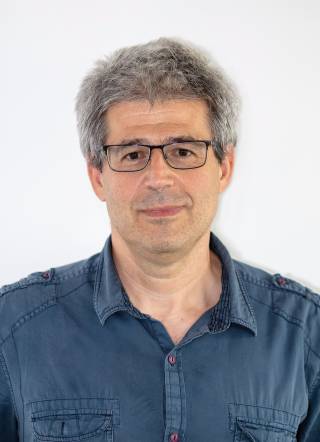Background
The Gissen group use cell and molecular biology approaches to investigate rare genetic disorders affecting intracellular trafficking and metabolism. The development of novel therapies to treat these disorders is the focus for the group.
Our long-standing interest is in understanding the mechanism of function of a multi-protein tethering complex containing VPS33B and VIPAR. Defects in these two proteins cause a range of human disorders affecting different tissues including liver, kidneys, bones and blood cells. For this work and other studies we employ cell and animal models of human disease.
The close proximity to Great Ormond Street Hospital (GOSH) gives us a unique opportunity to take a leading role in the clinical trials of novel therapies in inherited metabolic disorders working closely with the GOSH R&I department, Clinical IMD department and various industry and academic sponsors. Thus, translation of laboratory research into clinical practice is key for us!
Projects and key publications
1. ARC syndrome pathobiology and treatment development
Key collaborators: David Long, Adrian Thrasher, Claire Booth
Autosomal Recessive Keratoderma-Ichthyosis-Deafness (ARKID) Syndrome Is Caused by VPS33B Mutations Affecting Rab Protein Interaction and Collagen Modification.
Gruber R, Rogerson C, Windpassinger C, Banushi B, Straatman-Iwanowska A, Hanley J, Forneris F, Strohal R, Ulz P, Crumrine D, Menon GK, Blunder S, Schmuth M, Müller T, Smith H, Mills K, Kroisel P, Janecke AR, Gissen P.J Invest Dermatol. 2017 Apr;137(4):845-854.
Vps33b is crucial for structural and functional hepatocyte polarity.
Hanley J, Dhar DK, Mazzacuva F, Fiadeiro R, Burden JJ, Lyne AM, Smith H, Straatman-Iwanowska A, Banushi B, Virasami A, Mills K, Lemaigre FP, Knisely AS, Howe S, Sebire N, Waddington SN, Paulusma CC, Clayton P, Gissen P. J Hepatol. 2017 May;66(5):1001-1011.
Regulation of post-Golgi LH3 trafficking is essential for collagen homeostasis.
Banushi B, Forneris F, Straatman-Iwanowska A, Strange A, Lyne AM, Rogerson C, Burden JJ, Heywood WE, Hanley J, Doykov I, Straatman KR, Smith H, Bem D, Kriston-Vizi J, Ariceta G, Risteli M, Wang C, Ardill RE, Zaniew M, Latka-Grot J, Waddington SN, Howe SJ, Ferraro F, Gjinovci A, Lawrence S, Marsh M, Girolami M, Bozec L, Mills K, Gissen P.Nat Commun. 2016 Jul 20;7:12111.
VPS33B regulates protein sorting into and maturation of α-granule progenitor organelles in mouse megakaryocytes.
Bem D, Smith H, Banushi B, Burden JJ, White IJ, Hanley J, Jeremiah N, Rieux-Laucat F, Bettels R, Ariceta G, Mumford AD, Thomas SG, Watson SP, Gissen P. Blood. 2015 Jul 9;126(2):133-43.
Mutations in VIPAR cause an arthrogryposis, renal dysfunction and cholestasis syndrome phenotype with defects in epithelial polarization.
Cullinane AR, Straatman-Iwanowska A, Zaucker A, Wakabayashi Y, Bruce CK, Luo G, Rahman F, Gürakan F, Utine E, Ozkan TB, Denecke J, Vukovic J, Di Rocco M, Mandel H, Cangul H, Matthews RP, Thomas SG, Rappoport JZ, Arias IM, Wolburg H, Knisely AS, Kelly DA, Müller F, Maher ER, Gissen P. Nat Genet. 2010 Apr;42(4):303-12.
2. Development of therapies for metabolic liver disorders
Key collaborators: Ian Alexander (University of Sydney, Australia), Simon Waddington, Julien Baruteau, Philippa Mills, John Counsell, Haiyan Zhou
Safety and efficacy of an engineered hepatotropic AAV gene therapy for ornithine transcarbamylase deficiency in cynomolgus monkeys.
Baruteau J, Cunningham SC, Yilmaz BS, Perocheau DP, Eaglestone S, Burke D, Thrasher AJ, Waddington SN, Lisowski L, Alexander IE, Gissen P. Mol Ther Methods Clin Dev. 2021 Sep 14;23:135-146.
An In Vitro Whole-Organ Liver Engineering for Testing of Genetic Therapies.
Lorvellec M, Pellegata AF, Maestri A, Turchetta C, Alvarez Mediavilla E, Shibuya S, Jones B, Scottoni F, Perocheau DP, Cozmescu AC, Delhove JM, Kysh D, Gjinovci A, Counsell JR, Heywood WE, Mills K, McKay TR, De Coppi P, Gissen P.iScience. 2020 Nov 13;23(12):101808.
Mouse decellularised liver scaffold improves human embryonic and induced pluripotent stem cells differentiation into hepatocyte-like cells.
Lorvellec M, Scottoni F, Crowley C, Fiadeiro R, Maghsoudlou P, Pellegata AF, Mazzacuva F, Gjinovci A, Lyne AM, Zulini J, Little D, Mosaku O, Kelly D, De Coppi P, Gissen P.PLoS One. 2017 Dec 20;12(12):e0189586.
3. Biomarkers of metabolic diseases
Key collaborators: Philippa Mills, Kevin Mills, Peter Clayton, Wendy Heywood
Niemann-Pick type C disease as proof-of-concept for intelligent biomarker panel selection in neurometabolic disorders.
Papandreou A, Doykov I, Spiewak J, Komarov N, Habermann S, Kurian MA, Mills PB, Mills K, Gissen P, Heywood WE; Clinical cohort recruitment and characterization group.Dev Med Child Neurol. 2022 Jul 14.
Cerebrospinal fluid neurofilament light chain levels in CLN2 disease patients treated with enzyme replacement therapy normalise after two years on treatment.
Iwan K, Patel N, Heslegrave A, Borisova M, Lee L, Bower R, Mole SE, Mills PB, Zetterberg H, Mills K, Gissen P, Heywood WE.F1000Res. 2021 Jul 20;10:614.
4. Clinical trials for metabolic disorders
Study of Intraventricular Cerliponase Alfa for CLN2 Disease.
Schulz A, Ajayi T, Specchio N, de Los Reyes E, Gissen P, Ballon D, Dyke JP, Cahan H, Slasor P, Jacoby D, Kohlschütter A; CLN2 Study Group.N Engl J Med. 2018 May 17;378(20):1898-1907.
Hematopoietic Stem-Cell Gene Therapy for Cerebral Adrenoleukodystrophy.
Eichler F, Duncan C, Musolino PL, Orchard PJ, De Oliveira S, Thrasher AJ, Armant M, Dansereau C, Lund TC, Miller WP, Raymond GV, Sankar R, Shah AJ, Sevin C, Gaspar HB, Gissen P, Amartino H, Bratkovic D, Smith NJC, Paker AM, Shamir E, O'Meara T, Davidson D, Aubourg P, Williams DA. N Engl J Med. 2017 Oct 26;377(17):1630-1638.
Funders
Great Ormond Street Hospital Charity
Wellcome Trust
MRC
NIHR
Batten Disease Family Association
ERC
BioMarin
 Close
Close


